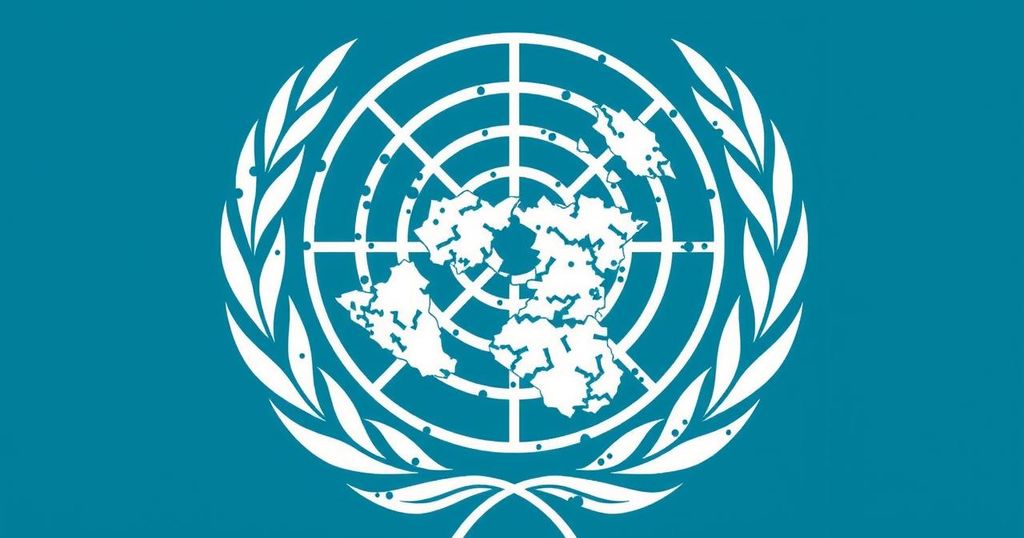This article discusses the ongoing violations of the UN arms embargo by the South Sudanese government since its imposition in 2018. Despite a lack of accountability for state-sponsored violence and human rights abuses, evidence suggests that the government continues to procure military supplies from sources such as the UAE, undercutting the embargo’s effectiveness. As the humanitarian crisis deepens, the international community is called upon to take action to protect the rights and safety of South Sudanese citizens.
Since the imposition of the arms embargo on South Sudan by the United Nations Security Council (UNSC) in 2018, the South Sudanese government has been implicated in ongoing human rights abuses, including extrajudicial killings and war crimes. Despite the embargo, there is evidence that the government continues to facilitate the importation of arms and military supplies, as detailed in a 2023 UN inquiry report. The situation remains dire, with no officials held accountable for these violations, further eroding the credibility of the government. The UNSC’s sanctions were a reaction to persistent violence and breaches of peace agreements. However, reports indicate that South Sudan has covertly procured military equipment, including vehicles supplied by the United Arab Emirates (UAE). Dynamic Defense Solutions FZE, a UAE-based company, made announcements via social media in August 2024 regarding securing a contract to supply vehicles to the South Sudan Army, only for these claims to be later denied by SSPDF spokesperson Maj. Gen. Lul Ruai Koang. The denials come despite photographic evidence of meetings between SSPDF officials and the company. My attempts to obtain clarity from Dynamic Defense Solutions regarding their relationship with the South Sudanese government were met with evasiveness. The company initially refrained from providing direct answers, leading to further suspicion regarding the legitimacy of their operations within South Sudan. Despite claims that their social media posts were fabricated by AI, evidence and responses suggest otherwise, implying direct engagement with the South Sudan Army. The data available through the SIPRI Arms Transfers Database indicates that South Sudan has received military supplies from various global suppliers, including a notable delivery of 150 armored vehicles from the UAE. This evidence supplements the assertion that South Sudan is effectively circumventing the arms embargo. Furthermore, government officials have violently suppressed peaceful protests, illustrating a disturbing trend of using militarized tactics against civilians while maintaining a veneer of compliance with international mandates. The government publicly misleads on personnel changes within key military divisions, further undermining trust in their governance. In conclusion, the United Nations arms embargo against South Sudan appears to be ineffective, as the government continues to acquire military supplies and perpetrate violence against its populace. The evidence suggests a stark disconnection between the stated objectives of the embargo and the reality on the ground, compelling the need for renewed scrutiny and action by the international community to support the plight of South Sudanese citizens who remain trapped in cycles of violence and oppression.
The arms embargo imposed on South Sudan in 2018 arose from concerns regarding the severe human rights abuses and the ongoing violence that has characterized the nation since its independence in 2011. The embargo was intended to restrict the flow of arms to the government, which has been accused of using military force to oppress its citizens and violate peace agreements. As the conflict persists, allegations have surfaced that senior officials continue to acquire weapons through illicit channels, undermining the embargo’s goals and contributing to a humanitarian crisis.
In light of the ongoing violations of the UN arms embargo, it is evident that the South Sudanese government is not only evading international oversight but is also further entrenching itself as a violator of human rights. The complicity of foreign entities in supplying military resources suggests a need for stronger international scrutiny and action to prevent the exacerbation of violence and the deterioration of living conditions for millions of South Sudanese citizens. Addressing these violations is crucial for restoring accountability and fostering peace within the region.
Original Source: www.radiotamazuj.org






